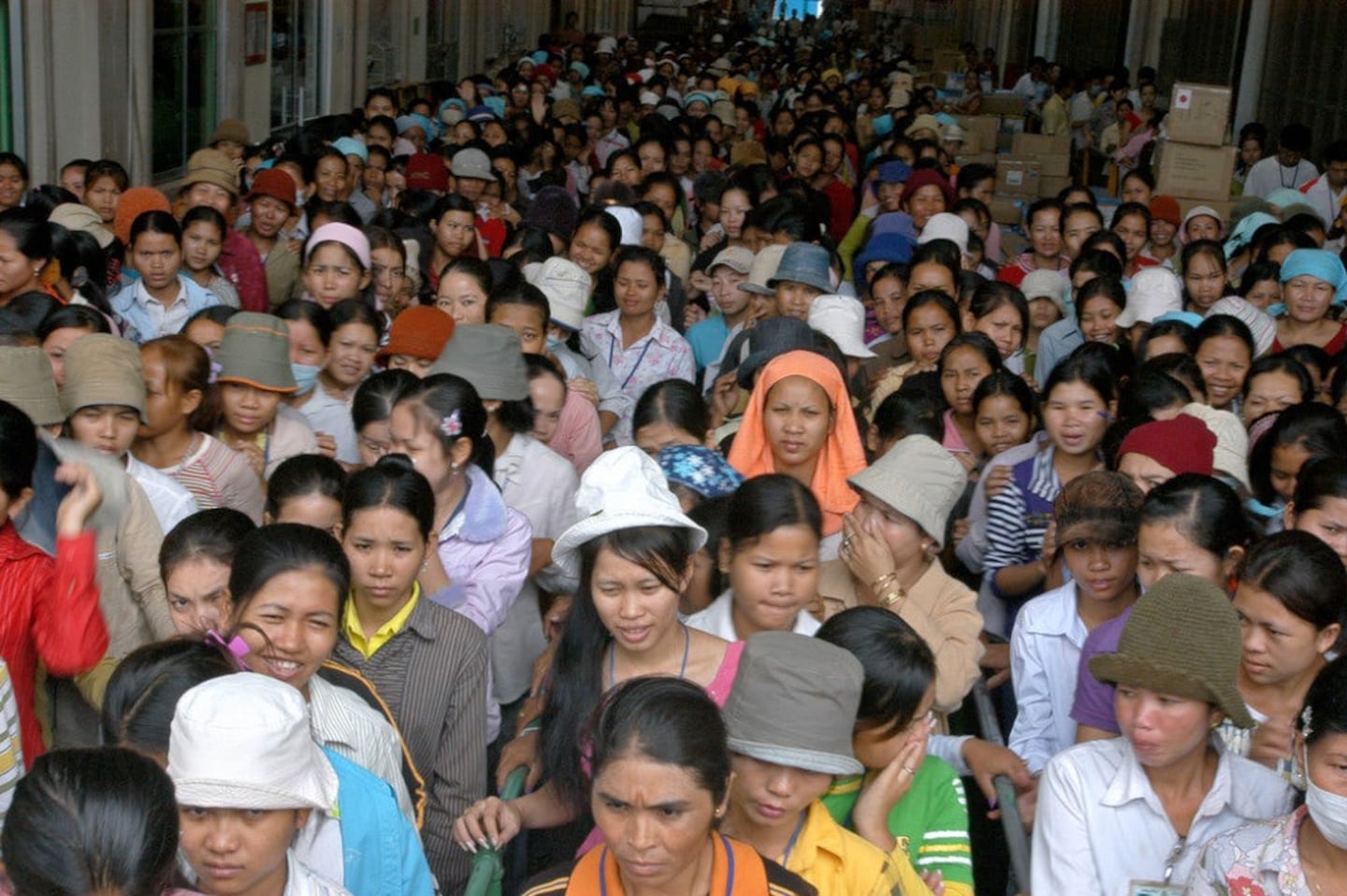
The Business of Fashion
Agenda-setting intelligence, analysis and advice for the global fashion community.

Agenda-setting intelligence, analysis and advice for the global fashion community.

PHNOM PENH, Cambodia — Cambodia's government and global clothing brands need to do more to protect garment workers from abuses such as forced overtime and discrimination, a rights group said.
Many factories unlawfully use short-term contracts to avoid paying benefits and indiscriminately fire workers, and verbal abuse and sexual harassment is common in the female-dominated industry, Human Rights Watch said Thursday in a report titled “Work Faster or Get Out.” Both the government and global producers need to commit to enforcing the law and ending abuse, the group said.
“Cambodian women working in the garment industry face a daily onslaught of harassment and abuse, and when they try to defend their rights by forming a union, they often get fired,” Phil Robertson, the group’s deputy Asia director said by e-mail.
“The problem is factory owners know they can get away with it because the government’s enforcement of the labor law is abysmal and far too many international brands are primarily interested in avoiding responsibility for the lousy conditions faced by workers making their clothes.”
ADVERTISEMENT
Surging wages and inflation in China in recent decades has led to a diaspora of low-cost garment production to countries such as Cambodia, Vietnam and Bangladesh, where labor regulations and safety standards are often poorly enforced. Pressure on local manufacturers to accelerate production has also grown as global brands such as Inditex SA's Zara and Hennes & Mauritz AB's H&M introduce styles as often as every two weeks to keep customers coming to their stores.
Economic Driver
Cambodia’s garment industry, which employs an estimated 700,000 people and exported $5.3 billion of apparel and shoes in 2013, was thrust into the spotlight in January 2014 when police and soldiers cracked down on workers protesting for a higher minimum wage, killing at least five people. The year before, a shoe factory collapsed, killing at least two workers.
The garment industry has been one of the key drivers of the Cambodian economy, which the World Bank forecasts will expand 7.5 percent this year, the fastest pace in all of East Asia.
The Human Rights Watch report, released in Phnom Penh, was based on more than 340 interviews with garment workers from 73 factories, union leaders, labor rights activists, government officials and representatives of the local clothing industry and international brands.
Anti-Union Practices
Workers at 48 factories supplying international brands told researchers that overtime was forced instead of voluntary as mandated by law. Workers at 35 factories reported anti-union practices, including the intimidation or dismissal of labor leaders. Workers at 30 factories reported abuses specific to pregnant women, such as refusal to renew contracts.
“I used to be exhausted but we just had to work very hard,” said Ku Kam Rein, 32, a former worker quoted in the report who quit when she was five-months pregnant. “I couldn’t go for any health checks. I didn’t have any time to go. We had targets to meet. And I was too scared to ask for permission. I asked the group leader and he asked another leader and that leader refused.”
ADVERTISEMENT
Despite the legal minimum age for garment workers being set at 15, Human Rights Watch said it documented younger workers in 11 factories. All the workers who reported children at their factories described how managers would order them to hide when visitors came, the group said.
“They told me to hide under the table and put a pile of clothes on us,” Lun Lea, 15, told researchers, noting she had started working when she was 14. “I sat there for so long. We were giggling with the pile of clothes on us. We were also scared that we would be fired. So we tried to keep very quiet when the visitors were there.”
Supply Chain
Researchers found that conditions were worse in factories that take on subcontracting work from other factories, including those that supply to well-known international brands.
“Brands have a critical role in promoting respect for workers’ rights throughout the supply chain,” the report said. “But a combination of poor supply chain transparency, absence of whistle-blower protection, and no information on available support mechanisms -- together with a lack of support for remedial measures to protect worker interests in unauthorized subcontractor factories -- hamper brand accountability.”
Human Rights Watch called on the government to hold factories accountable for abuse and to change its policies on inspection. It called on brands to publicly disclose their suppliers and to factor in the cost of safety, health and labor compliance into their contracts.
By: Chris Blake; editors: Andrew Davis and Andy Sharp.
From analysis of the global fashion and beauty industries to career and personal advice, BoF’s founder and CEO, Imran Amed, will be answering your questions on Sunday, February 18, 2024 during London Fashion Week.
The State of Fashion 2024 breaks down the 10 themes that will define the industry in the year ahead.
Imran Amed reviews the most important fashion stories of the year and shares his predictions on what this means for the industry in 2024.
After three days of inspiring talks, guests closed out BoF’s gathering for big thinkers with a black tie gala followed by an intimate performance from Rita Ora — guest starring Billy Porter.